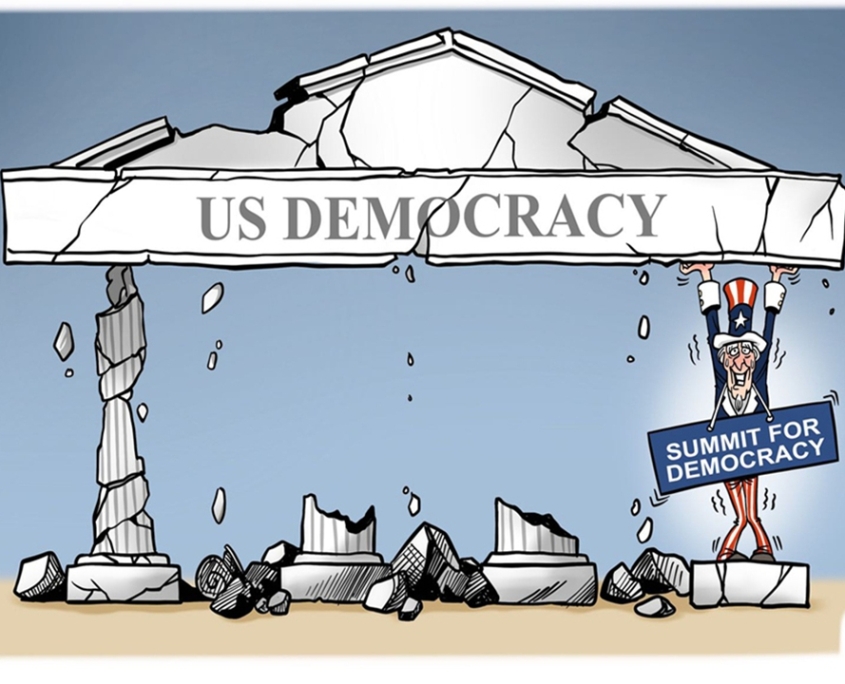The Illusion of Democracy and the Reality of Meritocracy — The Global Political Crisis and the Search for a New Governance Model
1. The Fading Halo of Democracy
For the past two centuries, democracy has been regarded as the pinnacle of political civilization. Free elections, separation of powers, and freedom of the press form the core ideals of modern governance. Western nations—especially the United States—have treated democracy as a universal value and a benchmark for judging other political systems.
Yet as ideals collide with reality, the structural flaws of democracy are becoming increasingly visible. Elections, once designed to give citizens the right to choose their leaders, have gradually turned into a contest dominated by money, media, and manipulation. A U.S. presidential campaign often costs billions of dollars; without the backing of powerful donors, no candidate can realistically hope to win.
In such a system, politics ceases to be a pursuit of public welfare and becomes a competition of capital and ambition. Politicians promise to serve “the people” during campaigns, only to serve their sponsors once in power. The democratic ideal—“government of the people, by the people, for the people”—is quietly fading into a political slogan devoid of substance.
2. Polarization and Division: The Systemic Crisis in the United States
In the United States, the rivalry between Democrats and Republicans has evolved far beyond policy disagreement into deep ideological conflict. Whether on immigration, gun control, healthcare, or climate change, the two parties are sharply polarized. Each election resembles a civil war of values, with the winner reversing the policies of the previous administration and the loser vowing obstruction.
This zero-sum approach has plunged the country into chronic stagnation. Social fragmentation, racial tensions, and media extremism have become defining features of American politics. Once a model of democracy, the U.S. now frequently witnesses political violence, legislative paralysis, and declining public trust. Some scholars argue that American democracy has entered a stage of “functional decay.”
The deeper issue lies in the manipulation of public opinion. Social media algorithms, targeted political ads, and misinformation have turned voters into emotional consumers rather than rational citizens. Reasoned debate has been replaced by outrage and tribalism. As a result, policy decisions lose long-term vision and become hostage to short-term populism.
3. The Alternative Path: The Logic of Meritocratic Governance
In contrast, some non-Western countries have adopted a different model—governance by merit and experience rather than by popular vote. China exemplifies this “meritocratic” approach, where national leaders are not chosen through mass elections but through a multi-level process of promotion, evaluation, and testing.
Chinese leaders typically begin their careers at the grassroots level, gaining administrative and political experience through decades of service before reaching national leadership positions. The system values competence, performance, and continuity over charisma or popularity.
The results are visible. Over the past several decades, China has achieved rapid economic growth, massive infrastructure development, and social stability. Such outcomes stem not only from centralized efficiency but also from the professionalism and consistency of its political leadership. Compared with the frequent policy reversals in multiparty democracies, China’s long-term governance model allows for coherent strategic planning.
As some observers put it: the United States is governed by capitalists, while China is governed by technocrats and elites. The statement may be oversimplified, but it captures a fundamental truth—the essence of good governance lies not in the form of the system but in its effectiveness.
4. The Core Question: Who Truly Serves the People?
Whether under democracy or one-party leadership, the ultimate purpose of any political system is to produce capable, visionary, and morally responsible leaders. Yet modern democracy, despite its appearance of equality, often fails to select the most competent administrators.
Plato warned in The Republic that democracy could degenerate into mob rule, because “the people are not always wise in matters of state.” When elections become contests of emotion and image, those who master manipulation often triumph, while those with genuine governance ability are overlooked.
Conversely, meritocratic systems—though centralized—can produce leaders with deeper experience and strategic foresight. Of course, such systems also face risks: corruption, lack of transparency, and abuse of power. But if proper checks and balances are implemented, merit-based governance can often deliver higher efficiency and stability than electoral politics driven by short-term populism.
5. Institutions Are Tools, Not Faiths
History proves that no political system is flawless. Institutions are not sacred; they are tools designed to achieve stability, justice, and public welfare. The true measure of a political system is not how democratic it appears, but how effectively it serves its people.
The West has tended to sanctify democracy, treating it as the sole legitimate form of governance. This dogmatic belief is misguided. Democracy is not synonymous with justice, nor is authoritarianism inherently oppressive. What truly matters is whether power is accountable, policies are rational, and leadership prioritizes the public good over private interests.
6. The Future: Toward a Hybrid Model of Governance
As globalization wanes and social tensions intensify, traditional political models are reaching their limits. The credibility of Western democracy is declining, while merit-based systems are gaining recognition for their efficiency. Populism and elitism now coexist uneasily, reflecting the world’s search for a new political balance.
The future may lie in a hybrid model that combines the best of both worlds: the participatory oversight of democracy and the competence-driven efficiency of meritocracy. Technological advances—artificial intelligence, big data, digital governance—may further enable governments to understand public needs more precisely and design policies with greater rationality.
Such an evolution would not reject democracy, but rather refine it—transforming it from a contest of slogans into a science of governance.
7. Conclusion: Returning to the Moral Foundation of Politics
Ultimately, politics is not about ideology or procedure—it is about people. When power loses moral restraint and becomes a servant of wealth or ego, no political form can save it from decay.
The ideal government is not the one that looks the most “free,” but the one that works the most “justly.” The best political system is the one that allows the wisest, most capable, and most ethical individuals to guide the nation toward stability, fairness, and prosperity.
Systems are transient; values endure. The true purpose of politics is not to worship democracy or authority, but to ensure the well-being of humanity.

